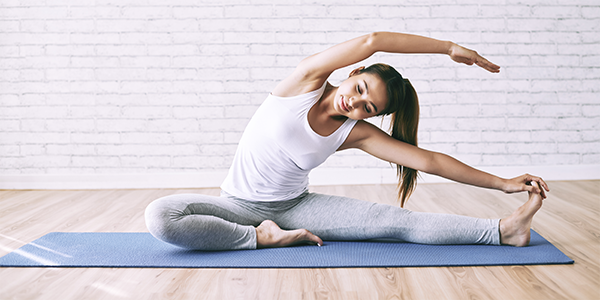These 4 Tips Will Help You Stay in Shape During Quarantine
This year’s preseason lifeguard training is proving to be anything but normal. For one, most of us are cooped up in our homes as we guard our loved ones’ lives — and our own — from COVID-19. And, with pools closed across the country, it’s also proven much tougher than usual for swimmers to get in a good workout.
While many will spend quarantine hunkering down on the couch with a pint of ice cream and a show to binge-watch, you’ll need to keep your body physically fit for future lifeguarding seasons. And, if you’re thinking about making 2020 your first lifeguarding season, now is the perfect time to apply on our website! Fortunately, we’ve got boatloads of ideas to maintain your training regimen while you stay docked.
Dryland Training
Every swimmer should have some “dryland training,” or out-of-water workouts, included in their regular regimen. But before you think about picking up some dumbbells, you might want to think about putting them down. That’s because getting swole isn’t so swell for swimmers, says Kelly Spivey, a Ph.D. in exercise physiology with Heartline Fitness.
“Too much bulk limits your range of motion,” Spivey said, “and people who lift primarily to add bulk usually have a harder time in the water.”
That being said, weight training is still a critical component to preventing injury and increasing power in the water. Spivey recommends adding bodyweight exercises to your dryland training regimen, citing that, “Pull-ups, push-ups, and squats are king” when it comes to building lean muscle. These compound exercises target multiple muscle groups that are critical for strong swimming form. Best of all, they don’t require any equipment or an open gym!
Spivey also recommends high-intensity interval training, or HIIT, to boost endurance, along with bootcamp workouts to build chest strength and cardio endurance. All those power gains will help you explode out of the lifeguard chair and into the water faster.
Even though gyms are closed at the moment, there are tons of these bodyweight workouts to choose from on YouTube. You can also check to see if your local gym offers online fitness classes, or download one of the hundreds of great fitness apps like Daily Burn or Nike Training Club for a more organized regimen. Some companies, including LIVunLtd, one of our partner companies under The Amenity Collective, are also hosting live fitness classes of all kinds on Instagram right now, so you have tons of options.
Just Keep Swimming (if You Can)
Swimmers usually need at least 500 meters of practice at least 3 times a week to maintain their in-water fitness. This might not be an option for everybody, but if you have a private pool at home, keep swimming!
You don’t even need an Olympic-sized pool to stay in shape. Spivey recommends practicing “no-turn” laps by stopping about 5 yards before the wall and reversing course without a push. For a more continuous swim, look into purchasing a swim resistance belt, which attaches you by your waist or ankles to one end of the pool. They’re fairly inexpensive, easy to install, and you’ll be back to your water workouts in no time!
Recover the Right Way
If you’re a competitive swimmer, then this section is meant for you. Most swimmers are exhausted by the end of the spring season, meaning this is the perfect time to enter recovery mode.
Rest is the best recovery method, which starts with a good night’s sleep of at least 8 hours. From there, focus on maintaining your cardio with some light jogging, and flexibility with some daily stretching or frequent yoga. Spivey also recommends studying your form with a few film sessions, or watching some educational videos. “There is something that happens just from watching,” she added.
Keep Your Mind Right
You’re only as strong as your weakest components. While so much of training focuses on the physical, it’s equally important to make sure you’re taking care of your mental health, now more than ever.
Whether it’s cabin fever or you miss your friends or you’re worried about your future — whatever might be eating at you right now — the time to talk to someone about it is now. Find a way to stay connected to the outside world, which also includes your lifeguarding team. Maybe you set up a digital hangout with some coworkers, or have an honest chat with a loved one. It’s also possible that you need professional help from a licensed therapist.
Whatever your needs, don’t wait. Remember that it’s OK to feel your feelings right now, and that this is also a temporary moment in time that will eventually fade. Lifeguards are expected to be strong, but no one can be strong for everyone all the time. Take care of yourself, just as you would take care of others.

